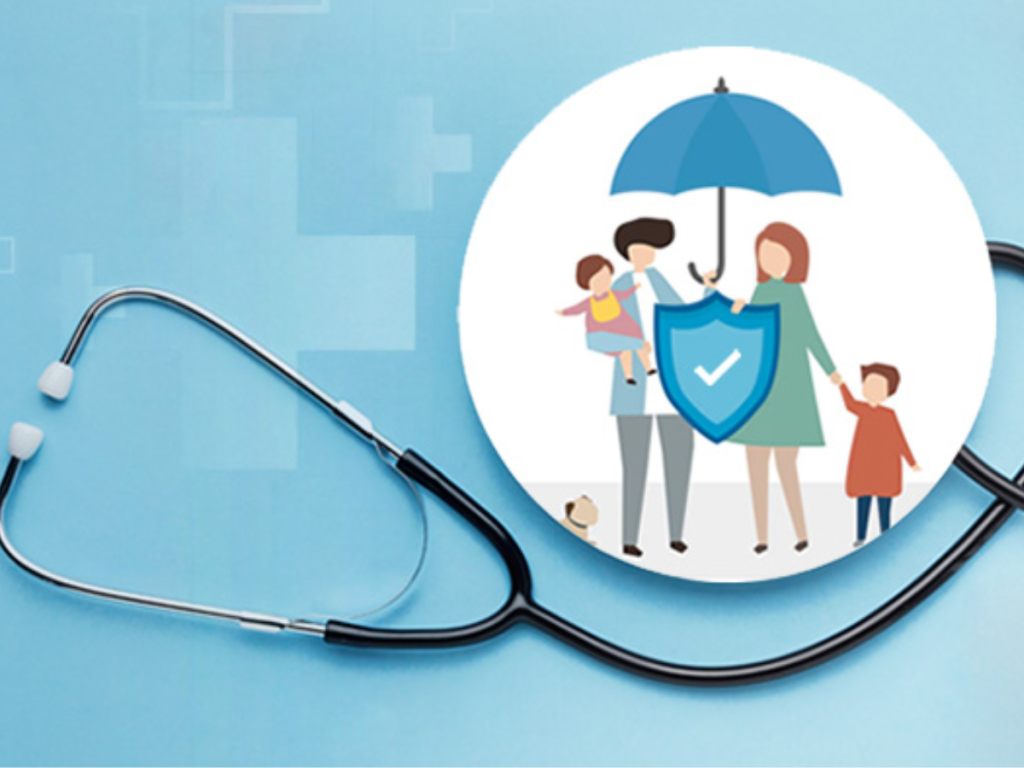Introduction
In today’s unpredictable world, medical insurance has evolved from being a luxury to an absolute necessity. Whether you’re a young professional just starting out, a family person seeking protection for loved ones, or someone planning for the future, having a health insurance policy is crucial. It provides not just financial support in times of medical emergencies but also peace of mind that you’re protected against unexpected health-related costs. If you’ve never purchased a health insurance policy before, the terminology and options can be overwhelming. This guide simplifies everything you need to know to make an informed and confident decision when purchasing your first medical insurance plan.
What is Medical Insurance?
Medical insurance, often referred to as health insurance, is a contract between you and an insurance company that helps cover the cost of medical expenses. In exchange for a monthly premium, the insurer agrees to pay part or all of your healthcare costs, depending on the terms of your policy. These costs can include doctor visits, hospital stays, surgeries, prescription drugs, preventive care, and more.
The primary purpose of medical insurance is to reduce your out-of-pocket expenses and make healthcare more affordable. With rising medical inflation, even a minor surgery can burn a hole in your savings. Insurance cushions you against such financial shocks.
Why is Medical Insurance Important?
- Financial Protection: The most obvious reason is the cost. A sudden illness or accident can lead to hefty hospital bills. Insurance ensures you don’t have to bear the full financial burden.
- Access to Quality Healthcare: With insurance, you can access a wide range of hospitals and specialists without worrying about the cost, improving the chances of timely and quality treatment.
- Cashless Treatment: Most insurers tie up with a network of hospitals where you can avail of cashless services, meaning the insurer settles the bill directly with the hospital.
- Tax Benefits: Under the Income Tax Act in many countries, you can claim deductions for premiums paid towards health insurance, adding to your savings.
- Preventive Care: Many policies offer coverage for preventive healthcare services like regular checkups, vaccinations, and wellness programs, enabling early diagnosis and better health management.
Key Terms You Need to Know
Before purchasing a policy, understanding some basic terms can help:
- Premium: The amount you pay, usually monthly or annually, to keep your policy active.
- Coverage Limit: The maximum amount your insurer will pay in a policy year.
- Deductible: The amount you must pay out of pocket before the insurance starts covering expenses.
- Co-pay: A fixed percentage of the claim amount that you must pay, and the rest is covered by the insurer.
- Network Hospitals: Hospitals that are tied up with your insurer where you can get cashless treatment.
- Waiting Period: A duration during which certain pre-existing diseases or conditions are not covered.
- Exclusions: Specific conditions or treatments that are not covered by the policy.
Types of Health Insurance Plans
When choosing your first policy, it’s essential to understand the types of plans available:
- Individual Health Insurance: This covers a single person. It’s suitable if you’re buying insurance only for yourself.
- Family Floater Plan: A single sum insured is shared among all family members, usually covering self, spouse, children, and sometimes parents.
- Senior Citizen Health Insurance: Tailored specifically for older adults, these plans usually have higher premiums but offer comprehensive coverage for age-related illnesses.
- Critical Illness Insurance: This covers specific life-threatening diseases like cancer, heart attack, or kidney failure. It pays a lump sum amount upon diagnosis.
- Group Health Insurance: Often offered by employers, these plans provide basic coverage. However, it may not be sufficient and may end once you leave the job.
- Top-Up Plans: These provide additional coverage once a certain threshold (deductible) is crossed. They are a cost-effective way to enhance your basic policy.
Factors to Consider Before Buying
When purchasing your first policy, don’t just focus on the premium. Consider these important aspects:
- Coverage Amount: Choose a sum insured that is adequate for your lifestyle and the medical costs in your city. For individuals in metros, ₹5-10 lakhs is often a minimum to start with.
- Inclusions and Exclusions: Read the policy documents carefully to understand what is and isn’t covered. Always know the exclusions to avoid unpleasant surprises during claims.
- Claim Settlement Ratio: This reflects the insurer’s efficiency. A higher ratio indicates that the company settles most claims, which is a good sign.
- Hospital Network: Ensure your preferred or nearby hospitals are included in the insurer’s network for cashless treatment.
- Room Rent Limit: Some policies cap the amount you can claim for hospital room rent. A cap may limit your choice of hospitals or rooms.
- Pre-existing Conditions: If you have any existing ailments, check the waiting period and the terms around them.
- No Claim Bonus (NCB): If you don’t file any claims in a year, you may be rewarded with an increase in your sum insured or a discount on the premium.
- Sub-Limits: These are limits on certain treatments or expenses. For example, a policy may have a sub-limit of ₹50,000 for cataract surgery.
How to Buy the Right Policy
- Assess Your Needs: Start by evaluating your age, health condition, family medical history, income, and city of residence. If you’re young and healthy, premiums will be low, and you can start with a basic policy with the option to enhance later.
- Compare Policies Online: Use comparison websites or insurance aggregator platforms to compare features, premiums, and user reviews of various insurers.
- Understand the Fine Print: Go through the policy brochure and document thoroughly. Look for waiting periods, exclusions, co-payment clauses, and add-on options.
- Choose the Right Insurer: Go with reputed insurers with good customer service, a high claim settlement ratio, and transparency in their process.
- Take Expert Advice: If you’re unsure, talk to a certified insurance advisor or agent who can explain policies in detail and recommend options based on your profile.
Common Mistakes to Avoid
- Buying Only for Tax Benefits: While tax savings are great, don’t choose a policy just to claim deductions. Focus on comprehensive coverage and long-term value.
- Choosing the Cheapest Plan: A low premium often comes with reduced benefits, high co-pays, or restrictive clauses. Look beyond just the price.
- Not Disclosing Health Conditions: Always declare your medical history honestly. Failure to do so can lead to rejection of claims.
- Delaying the Purchase: The younger and healthier you are, the cheaper your premium. Waiting too long can lead to higher costs or even denial of coverage.
- Ignoring Policy Renewal Terms: Know your renewal terms. Lifetime renewability is a must-have feature in your policy.
The Ideal Time to Buy Health Insurance
There is no perfect age, but the earlier, the better. Buying in your 20s or early 30s means lower premiums, fewer pre-existing conditions, and full coverage when you’re older. Even if you’re covered by your employer, it’s wise to buy a personal policy as a backup.
What to Do After Buying a Policy
- Save Your Documents: Keep a digital and hard copy of your policy document, health ID card, and claim forms. Share a copy with your family.
- Understand the Claims Process: Know how to file a claim, whether cashless or reimbursement, and the required documents for both.
- Track Your Policy: Note the renewal dates, and set reminders. Late renewals can lead to lapse in coverage.
- Review Annually: Health needs evolve. Review your policy every year to upgrade the coverage or switch insurers if necessary.
Health Insurance and Lifestyle Benefits
Good health insurance not only saves money but encourages healthier living. Many insurers offer wellness programs, gym memberships, diet consultations, and discounts on lab tests or medicines. This promotes preventive care and keeps you healthier overall.
Future Trends in Health Insurance
The health insurance landscape is evolving. With digital platforms, buying and managing insurance is easier than ever. Telemedicine, wearable health tracking, and AI-based risk analysis are reshaping how policies are structured and personalized. In the future, insurance will likely become more proactive—rewarding you for staying healthy rather than just stepping in during illness.
Conclusion
Buying your first medical insurance policy is a big step toward securing your health and finances. It may seem complex at first, but with the right understanding and a thoughtful approach, you can find a plan that provides both protection and peace of mind. The key is to start early, assess your needs carefully, and remain informed. Health is wealth, and insurance is your best investment in protecting that wealth.
Taking that first step today can safeguard your tomorrow. Whether it’s a minor checkup or a major surgery, you deserve the comfort of knowing that you won’t be alone financially. So take the time, do the research, and choose the coverage that’s right for you and your loved ones.

